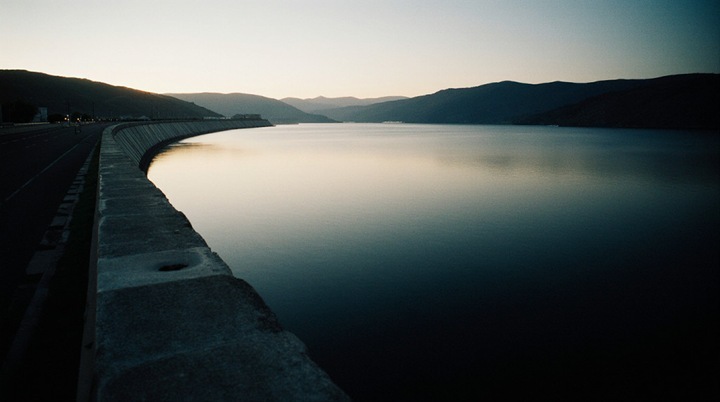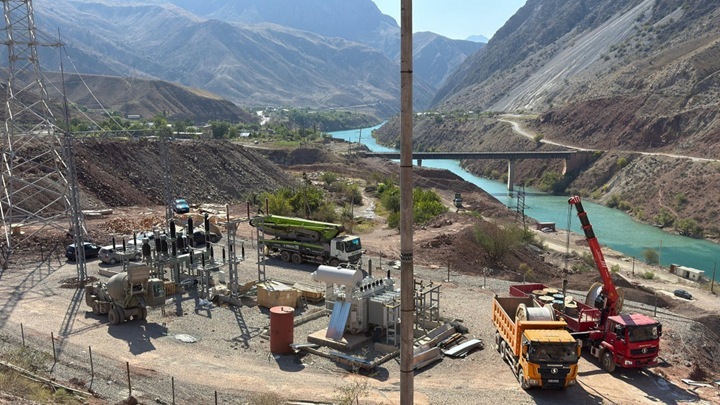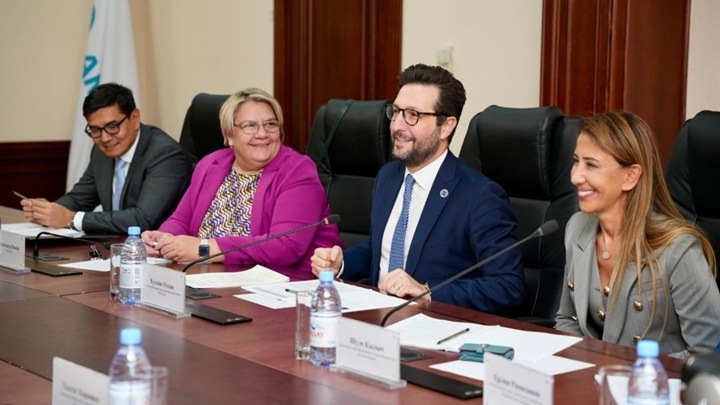A controversial financing scheme for the first HPP is being discussed in Kazakhstan
In Kazakhstan, a discussion is unfolding around the initiative to amend the law “On Electric Power Industry” aimed at stimulating the construction of pumped-storage power plants (HPPs). The proposals that have appeared in the public domain suggest the creation of special conditions for the first project of this kind in the country, however, the financial burden of its operation can be shifted to end users – the population and business, the Karavan newspaper notes. We are talking about the provision of free electricity for the operation of the station, which raises serious questions from the expert community regarding market fairness and risks to the competitive environment.

The essence of the pumped storage station lies in its dual function. As Sergey Agafonov, chairman of the Kazakhstan Association of Energy Repair, Design, Engineering Companies and Manufacturers of Power Equipment, explains, the PSPP is, in fact, a huge gravity battery. During the day, during peak load hours, the station operates like a conventional hydroelectric power station, discharging water from the upper reservoir through turbines and generating electricity. At night, when the consumption in the power system drops and there is an excess of cheap energy, the PSPP uses it to pump water back into the upper reservoir, thereby “storing” energy for the next peak. This ability to maneuver capacity makes the PSPP an indispensable tool for balancing the energy system, especially in conditions of a growing share of unstable renewable energy sources.
However, the economic model of the project proposed in the amendments has attracted criticism. In order for the station to be profitable, it needs access to very cheap night-time electricity. The initiators of the bill propose a radical solution – to make this energy for the PSPP completely free. The comparative table to the amendments explicitly states: “In order to implement a pumped storage station, it is necessary to make electricity for water injection (consumed by pumps) free of charge.” The document explains that if the PSPP purchases electricity from a single buyer at a market price of about 29 tenge per kWh, these costs will inevitably be included in its final tariff, which will make the project economically inexpedient. Thus, it is proposed that billions of tenge needed to “charge” this giant battery should be subsidized by raising tariffs for all other market participants.
Although the documents do not directly indicate the initiator of the project, market participants almost unanimously point to the national company JSC “Samruk-Energo”. It is this energy giant, which is part of the Samruk-Kazyna Fund, that is actively working on plans for the construction of a PSPP. Last summer, the company signed a cooperation agreement with China International Water & Electric Corporation CWE, and in 2025 signed an agreement with a Chinese partner on joint activities on this project. Other companies in Kazakhstan are unlikely to have the resources to implement such a capital-intensive initiative.
The declared minimum capacity of the future station is 35 MW, which is a relatively modest indicator for the country’s energy system. For comparison, the capacity of the Kapshagai HPP reaches 364 MW, and the Shulba HPP – 702 MW. According to preliminary expert estimates, the construction cost may be at least $ 87 million, or about 47 billion tenge. Despite the small capacity, such an object is really capable of helping to smooth out daily peaks and a shortage of maneuverable capacities. However, its construction will take at least three to four years, and by that time the projected shortage of electricity in the country may double, reaching 7 billion kWh.
The main claim of experts boils down to the fact that a non-market, exclusive support mechanism is being created for one major player, while competitive auctions are provided for other market participants, for example, investors in industrial batteries. This creates a potential field for corruption and distorts the principles of fair competition. “If you are so effective, then lobby for an open competition and put everyone on their shoulders,” Sergey Agafonov addresses the initiators. In his opinion, the current proposal looks like an attempt to get the project out of competition, provide it with a free resource and guarantee a favorable tariff set by the government for its own company.
Original (in Russian): В Казахстане обсуждается спорная схема финансирования первой ГАЭС


